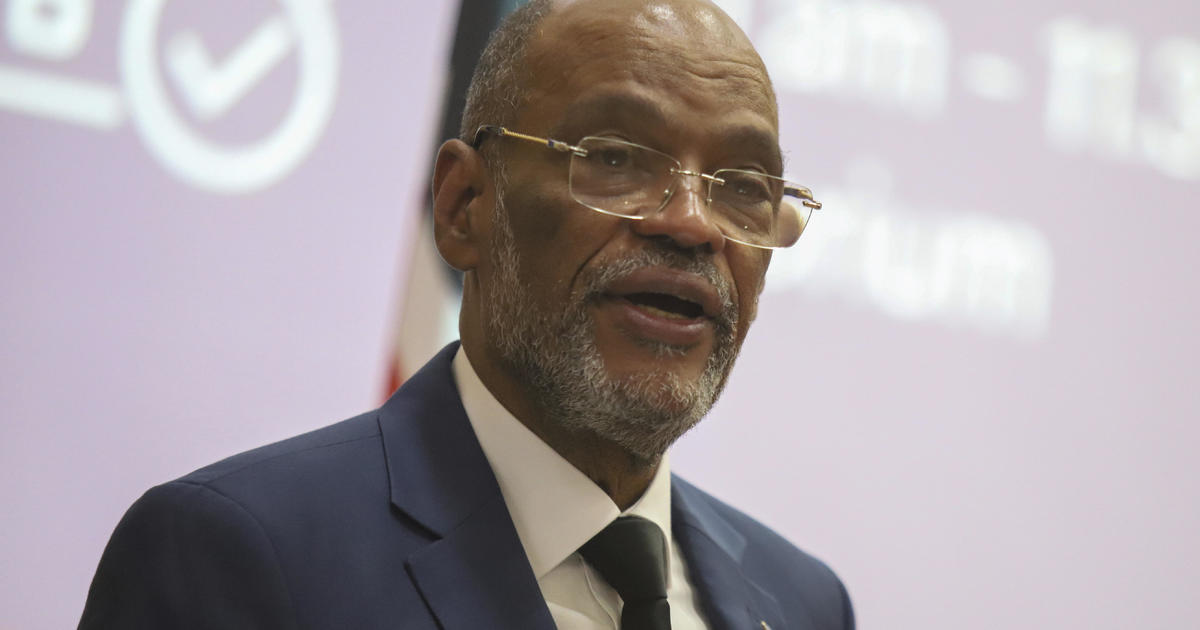Dozens of banks told Texas attorney general they don't "discriminate" against firearms companies
Two days after 19 children and two teachers were gunned down in a Texas elementary school on May 24, an investment banking firm sent a letter to Texas Attorney General Ken Paxton promising not to "discriminate" against the firearms industry.
The firm, Chicago-based Cabrera Capital Markets, LLC, is the most recent of dozens of banking institutions to make the declaration in the last year, in order to comply with legislation banning Texas state and local governments from working with firms that prohibit investments in firearms or ammunition manufacturers. The letters, more than 80 of which have been reviewed by CBS News, throw in stark relief the fraught political environment corporations face when called upon to respond to mass shootings.
Most of the institutions — including local companies like the First State Bank of Uvalde, and multinational corporations like Barclays — submitted one of two standardized forms of the letter published by Paxton's office and the nonprofit Municipal Advisory Council of Texas. In the form letters, the banks attest that they "do not have a practice, policy, guidance, or directive that discriminates against a firearm entity or firearm trade association."
Cabrera Capital Markets executives did not reply to emails and phone calls from CBS News.
The law reflects the perilous waters navigated by many companies in an age of increasingly divisive politics, according to University of Houston economics professor Steven Craig. He says the push for corporations to embrace political stances can make markets inefficient.
"The fact that they're putting political risk in U.S. commercial activities is a sign that we're not in good times," said Craig, adding that the law was a reaction to announcements in 2018 by JPMorgan Chase and Citigroup that they were limiting partnerships in firearms.
"Clearly they thought it was going to be commercially a good idea to tell their customers what they were doing, and that they were going to make these political judgments. And, in my view, they forgot that the governments might respond to what they're doing, which is what happened in Texas," Craig said.
A spokesperson for Citi, which submitted a version of Paxton's form letter in October, pointed CBS News to a June 2021 company blog post responding to the Texas law. In the post, a CIti executive wrote that the company's policies have not changed since 2018, when Citi said it would not take on retail sector clients or partners that sells guns to people under 21 years of age, or sell bump stocks or high-capacity magazines.
In JPMorgan's letter, which was sent on May 13, the company said it does not discriminate against the firearms industry, but it "will not finance manufacturers of military style weapons for civilian use" and "generally consider the firearms industry high-risk, with clients subject to heightened due diligence requirements."
Paxton's office did not reply to emails seeking clarification on whether Citi and JPMorgan's policies are discriminatory toward the firearms industry. JPMorgan's letter was first reported on by The New York Times.
Banks suspected of falsely claiming to comply with the Texas law can be subject to criminal prosecution.
The banks may soon have to satisfy regulators in several other states where politicians are aiming to protect firearms manufacturers, according to Columbia University law professor Jeffrey Fagan. He drew a comparison to the spread of so-called "stand your ground" self-defense laws after one in Florida gained notoriety.
"That template was widely distributed across conservative states. And so, in a sense, it became a kind of contagion of thought. The idea and law," Fagan said. "And I don't see any reason why this can't be subject to the same kind of contagion."
Legislatures in at least eight other states — Arizona, Kansas, Kentucky, Missouri, Ohio, Oklahoma, South Dakota and West Virginia — are considering similar legislation, according to the National Shooting Sports Foundation, a firearms industry trade association that is advising legislators on the bills.
Fagan wondered if these laws might ultimately run afoul of Supreme Court precedent regarding corporate speech.
"If we think back to Citizens United, investments by corporations as political speech was allowed," Fagan said, referring to the 2009 landmark Supreme Court decision prohibiting the government from restricting corporate contributions to political campaigns. "Why can't we draw an analogy that if we're banning companies from doing this, that this is infringing on their rights for political speech?"



